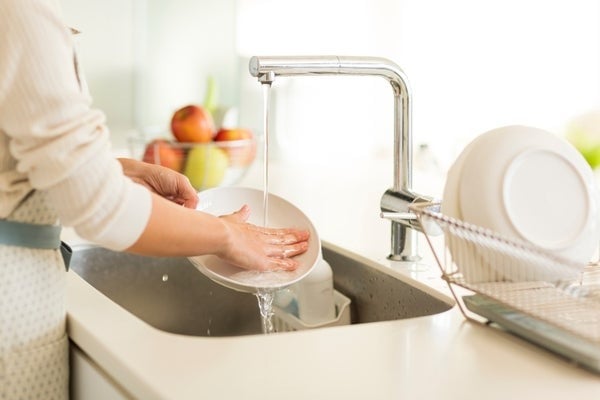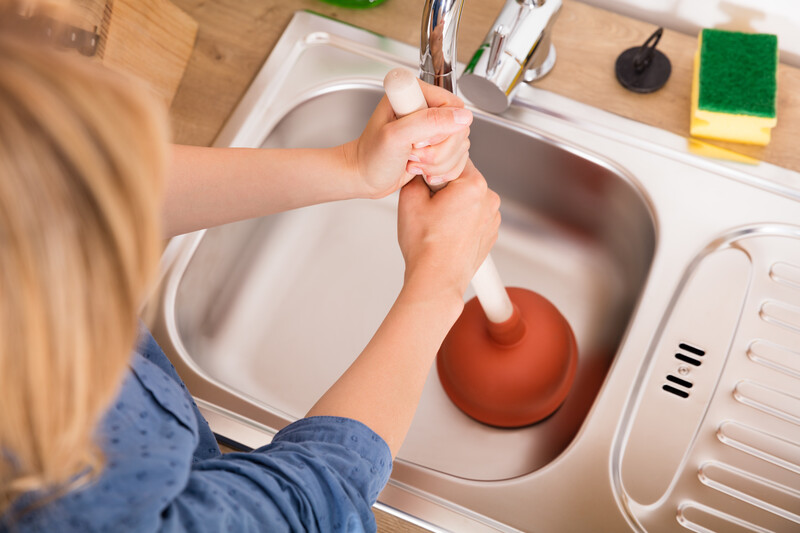Useful Ways To Repair Slow-Draining Sink Problems
Useful Ways To Repair Slow-Draining Sink Problems
Blog Article
Listed here further down you can locate more outstanding content when it comes to Three Common Ways to Fix a Slow Drain.

Introduction
We have actually all existed: You're cleaning your teeth or washing your hands, and you discover the water merging in the sink. Instead of rapidly swirling down the tubes, it lingers, transforming your once-refreshing morning regimen into a mini swamp scene. A slow-draining sink isn't just bothersome; it's often a sign of bigger plumbing issues prowling underneath the surface. The good news is that the majority of slow-draining sinks can be taken care of with a little knowledge, a few fundamental tools, and some perseverance. Prepared to tackle this task head-on? Let's roll up our sleeves and dive right in.
Recognizing the Sources Of a Slow-Draining Sink
Prior to you begin poking around in your pipes, it aids to recognize what could be triggering the slowdown. Comprehending the root cause makes it less complicated to select the best solution.
Typical Wrongdoers Behind Slow Drain
So, what's obstructing things up? Normally, it's a mix of daily particles-- assume hair, soap scum, toothpaste residue, and leftover food particles. In time, these tiny bits build up and cling to the pipe walls, gradually tightening the passage and making it harder for water to go through. In some cases, natural resource from tough water can also add to the gunk, developing the excellent storm for persistent blockages.
When is it Time to Take Action?
If you observe the water draining slower than usual, it's a good concept to step in earlier instead of later on. Waiting as well long could cause finish blockages, unpleasant odors, or perhaps pipeline damage. If the water takes greater than a couple of seconds to clear out after switching off the tap, consider it a red flag and prepare yourself to place on your do it yourself hat.
Tools and Products You'll Require
The right devices make all the distinction. Thankfully, you won't need a completely equipped plumbing's van to finish the job.
Essential Tools for DIY Repair Works
A bettor is your best starting factor. A tiny, sink-sized bettor creates suction that can dislodge minor clogs. For more relentless obstructions, a drain serpent (in some cases called a plumbing technician's auger) works marvels. A set of gloves, a flashlight, and perhaps a pair of protective safety glasses are also handy.
Advised Cleaning Solutions
Mild recipe soap and hot water can help break down oily build-up. A mixture of cooking soda and vinegar is a reliable natural remedy, and enzymatic cleansers provide an even more environmentally friendly strategy. Keep chemical drain cleansers as a last resource, as they can be harsh on your pipes.
Safety And Security First: Precautions and Preparations
Prior to you launch into unclogging mode, think of safety. You're dealing with possibly dirty water and debris, so slip on a set of gloves. If you're making use of chemical cleaners, ensure the room is well-ventilated and follow the directions on the label.
Protective Gear and Work Area Arrangement
Put down some old towels or dustcloths around the sink area to capture sprinkles. Clear away any kind of products that might get in your way, like soap dispensers or tooth brush holders. Make sure you have excellent lighting-- order a flashlight if needed.
Step-by-Step Guide to Taking Care Of a Slow-Draining Sink
Currently, let's enter the nitty-gritty. This step-by-step process will certainly guide you through easy methods to recover your sink's drain.
Action 1: Get Rid Of and Clean the Stopper
Usually, the stopper (that small plug you push down to obstruct water) is the very first perpetrator. Remove it meticulously and wipe any hair or substance trapped around its base. Rinse it thoroughly prior to placing it back in place.
Action 2: Utilize a Plunger to Displace Debris
Got that bettor ready? Setting it over the drain and give it a few company pumps. The idea is to develop suction that can loosen up any kind of clog. If you see bits of debris drifting up, you're on the ideal track.
Step 3: Try a Drain Serpent or Wire Hanger
If the bettor does not do the trick, it's time to draw out the drainpipe serpent. Gently feed it into the drain and spin as you go. You might feel some resistance-- that's most likely the clog. Keep turning and pulling until you remove the obstruction. If you don't have a drainpipe serpent, a straightened cord hanger can operate in a pinch.
Step 4: Apply a DIY Drain Cleaner
A natural cleaner made from baking soda and vinegar can break down recurring crud. Pour half a cup of cooking soda right into the drain, adhered to by half a mug of vinegar. Let it fizz for about 15 minutes, after that flush with hot water. This chain reaction typically does wonders for small obstructions.
Tip 5: Rebuild and Examine the Sink
Placed whatever back with each other and run the tap. Does the water currently swirl down the drain at a decent speed? If yes, give on your own a pat on the back. If not, don't misery-- there are still a couple of more tricks up your sleeve.
Alternative Approaches for Stubborn Clogs
Not all obstructions are produced equal. If your sink still declines to coordinate, think about these different solutions.
Baking Soda and Vinegar Approach
We currently discussed this, however it deserves keeping in mind once again. This gentle, green method is safer than chemical cleaners and often rather efficient.
Enzymatic Drain Cleaners
Enzyme-based cleaners make use of natural microorganisms to digest organic matter. They're an outstanding selection if you're aiming to avoid harsh chemicals. Simply keep in mind, they may take a bit longer to work their magic.
Chemical Drain Cleaners: Advantages And Disadvantages
Chemical cleaners can blast through tough obstructions fast, but they're not without downsides. They can produce warm and fumes, damages pipelines if utilized exceedingly, and present environmental dangers. Utilize them sparingly, and always comply with the instructions thoroughly.
Safety Nets to Keep Your Sink Flowing
Avoidance is the best cure. By taking on a few basic habits, you can keep your sink from decreasing in the first place.
Routine Cleaning Up Routines
Clean down the sink container and fixture area routinely. Get rid of hair or food bits prior to they have a possibility to wash down the drainpipe.
Preventing Hazardous Materials Down The Tubes
Think twice prior to discarding coffee grounds, oil, or fibrous vegetable scraps down the sink. These perpetrators cling to pipeline walls, creating blockages gradually.
Routine Upkeep Checks
Arrange a quick monthly assessment. Run hot water through the sink for a few minutes, taking note of the circulation. If it seems slow, act quick before it comes to be a full-blown blockage.
When to Call a Professional Plumbing Professional
Sometimes, despite exactly how difficult you try, that block just won't move. That's when it's time to bring in the pros.
Indicators That Show a Much More Major Issue
If your sink drains pipes slowly despite multiple attempts, or if you see water supporting in various other fixtures (like your shower or bathroom), you might have an extra major pipes issue hiding much deeper in the system.
Balancing Do It Yourself Initiatives with Professional Help
While DIY can conserve you money and use a sense of success, there's no pity in calling a professional. A specialist plumbing technician can evaluate your whole pipes arrangement, ensuring there's no underlying damage or lasting trouble that might cost you a lot more in the future.
Contrasting Costs and Long-Term Solutions
Prior to making a decision, take into consideration the big picture. A low-cost, quick fix may fix the issue momentarily, however purchasing a much more permanent service could save you cash and stress and anxiety in the future.
Evaluating the Expenses of Do It Yourself vs. Expert Repairs
DIY fixes commonly cost little greater than the rate of a bettor or a container of cooking soda. Specialist solutions, on the other hand, included a cost however might stop repeated concerns and expensive fixings later.
Buying Quality Fixtures and Upgrades
If your sink's design adds to constant clogs, it may be worth upgrading to higher-quality components or altering the plumbing design. Consider this an investment in your home's performance and convenience.
Verdict
A slow-draining sink can feel like a small irritability, however it's often an indication that your plumbing requires a little tender loving care. By understanding the root causes, employing the right devices and techniques, and devoting to simple safety nets, you can maintain your sink moving easily. And when all else fails, never ever wait to call an expert-- your home's pipes deserves the investment in treatment and maintenance.
Three Common Ways to Fix a Slow Drain
Baking Soda Method
Boil a full pot of water. Measure out cup of baking soda and pour it down the drain. Then take cup of the magical cleansing substance known as white vinegar and drop that down there too. Allow the mixture to fizz in the drain for five minutes as the vinegar and baking soda combine. Now dump in that whole pot of boiling water. This combination of cleaning substances should clear out anything that is causing your sink to drain slowly. If it doesn t...
Zip-It
If the baking soda method doesn t clear out your drain, it may be because a significant amount of hair and/or other debris has collected there and you need to remove it. Purchase a Zip-It tool at any home improvement or hardware store and insert it into your drain. It will catch any collected hair or debris that s blocking the flow of water. Pull it out. If it s got a big clump of hair, etc. on the end, you ve probably got your culprit.
Drain Cleaner
If these methods don t work, there is the standard drain cleaner that you can also buy in a hardware store or even your local grocery store. It s better if you can use a household solution, but these drain cleaners often work in a pinch. They re very simple to use. You generally just dump them in your drain and wait. If even this method is not effective, it may be time to call the plumber.
https://www.mrrooter.com/oneida/about-us/blog/2017/july/three-common-ways-to-fix-a-slow-drain/

We had been guided to that report about 7 Ways To Fix A Slow-Draining Sink Before You Call A Plumber through a buddy on another web page. Loved our content? Please share it. Help other people discover it. Thanks a lot for taking the time to read it.
Services Report this page